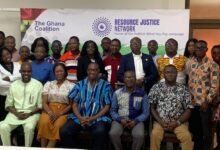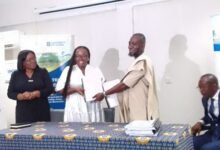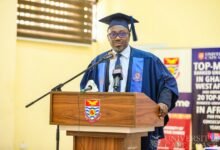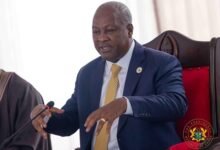
Prof. Peter Lamptey, a professor in Global Non-Communicable Diseases (NCDs) at London School of Hygiene & Tropical Medicine/ President Emeritus FHI360, has noted that lack of funds to combat NCDs is posing a challenge to efforts to curb the risk of increase.

Speaking on the topic ‘Combatting Non-Communicable Diseases: Africa’s Greatest Health Challenges,’ he noted that, the funds available globally to address NCDs as compared to HIV/AIDS, Malaria etc, was nothing to write home about.

“There is virtually no response at all to combat NCDs as compared to HIV/AIDS and malaria and it is part of the reasons why NCDs continue to be a problem and it will continue to get worse,” he lamented.
Prof. Lamptey, who was the guest speaker at the 2023 Harvard University Joseph S. Agyepong Distinguished Lecture on Public Health in Africa at the University of Ghana- Legon in Accra, stressed that the impact of NCDs to sub-Sahara Africa was enormous as there was an increased cost to households.
“You have to buy medications, pay for treatments which are often too lengthy and expensive,” he noted.
He noted that Africa was currently experiencing the triple disease burden; endemic and epidemic, current and future pandemic (HIV, COVID) and lastly the explosive burden of NCDs and if immediate measures were not taken, “it will get worse.”
“We need better recognition of the burden of NCDs and we need not just individuals, but national and international support to combat it,” Prof. Lamptey emphasised.
Prof. Lamptey further reiterated that “one of us will end up with NCDs; the time to act is now, adding that no one has to die or suffer from NCDs.”
The Director-General of the Ghana Health Service, Dr Patrick Kuma-Aboagye on his part noted that the cost of care was still catastrophic and that usual push Ghanaians to seek alternative treatment that do not work.
“Studies we have done indicate that one NCD can virtually collapse a household and this drives people to seek alternative treatments that do not work and that can have compounding effect on the individuals,” he warned.
In responding to the call, the Executive Chairman of the Jospong Group of Companies, Dr Joseph Siaw Agyepong and his wife, Adelaide Siaw Agyepong donated GH¢500,000 to support NCDs advocacy in Ghana.
The Joseph S. Agyepong Distinguished Lecture on Public Health in Africa is under the auspices of Harvard University Centre for African Studies (CAS) and aims at exploring topics related to public health in Africa by engaging leaders, policy makers, researchers and academics around Africa’s public health challenges.
This is the fourth annual Lecture on Public Health in Africa held in Ghana since its endowment in 2020 by Dr Joseph Siaw Agyepong, founder and Executive Chairman of the Jospong Group of Companies.
It provides an annual platform for CAS to partner with fellows and students at the Harvard Medical School, Harvard TH. Chan School to ensure that Africa is at the forefront for conversations, scholarship, and research in global public health.
This year’s Lecture in partnership with the University of Ghana represents an opportunity to deepen linkages between Harvard University and the University of Ghana during its 75th anniversary year.







